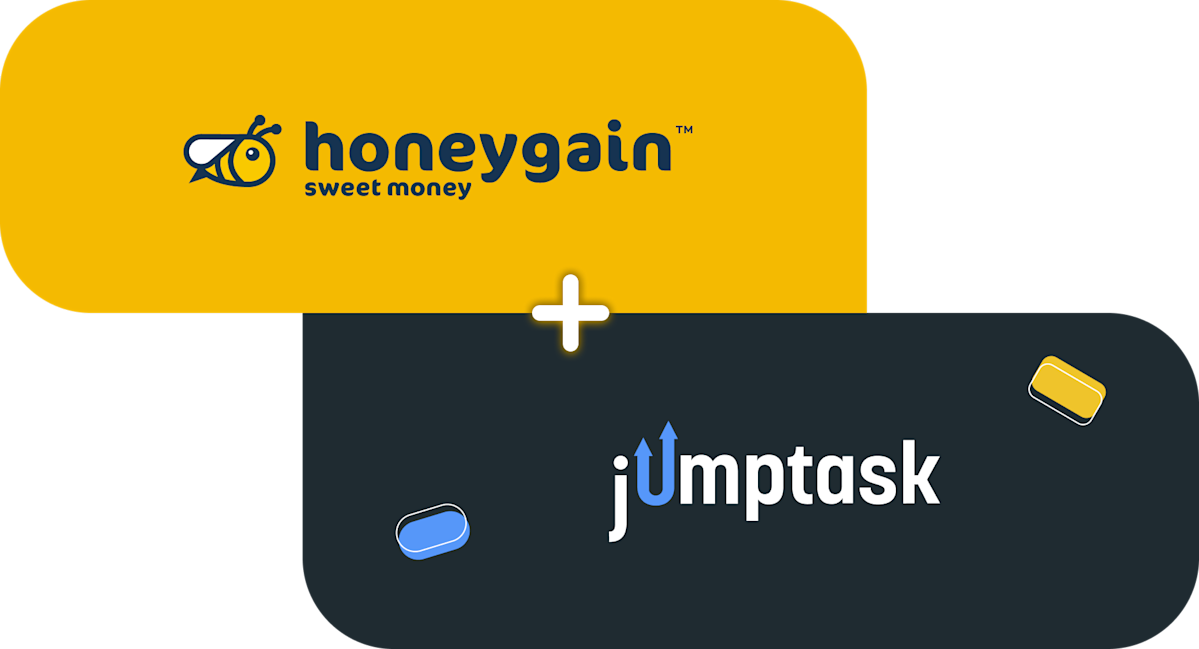
Jul 14•6 min read
The latest crypto secret weapon - Hyper-personalize shopping

Did you know you can earn crypto through Honeygain now? Jumptask has partnered with Honeygain to boost your passive income! You can earn more than a 50% bonus through crypto! Check out here for the announcement and join here to earn your $5!

Retailers always look for ways to increase customer loyalty, drive sales, and remain competitive. One way is through digital rewards programs to incentivize customers to keep coming back by rewarding them with points or other perks when they shop at that store or chain. But not all digital rewards programs are created equal, and many retailers have struggled with them because of the limitations of traditional rewards software. For example, these solutions often require separate apps, websites, and account management systems, which makes it inconvenient for customers to manage their loyalty accounts. In addition, these solutions usually don’t offer much customization regarding products or services provided as rewards to customers. For example, a retailer might want to offer rewards such as free shipping on orders over a certain value or even free in-store pickup if the shopper meets certain conditions.
Why loyalty programs fail
Most loyalty programs are just that—programs. They aren’t actually connected to any customers. Retailers might track how many points customers earn, but they don’t know anything about their customers. This creates a disconnected shopping experience, and studies show that customers are becoming less and less interested in traditional points-based loyalty programs. A Forrester survey found that only 22% of people were interested in traditional loyalty programs, down from 32% in 2012. Retailers have struggled with these problems because most loyalty program software is built on old technology. Most retailers still use traditional point systems, which aren’t designed to be highly customized or personalized. In addition, these systems often require separate websites, apps, and account management systems, which makes it inconvenient for customers to manage their loyalty accounts.
Brands that focus on a personalized service often forget that consumers
As retailers try to increase customer loyalty, many brands have forgotten that offering personalized service is the best way to do so. A recent survey found that customers are three times more likely to buy from a retailer that offers personalized service than those that don’t. But most retailers either don’t provide personalized service or do so only in a basic way, such as asking for a shopper’s name when they check out. If brands want to personalize service truly, they should look at all aspects of the shopping experience and see where they can add personalization. For example, retailers can offer personalized discounts based on a customer’s past shopping history.
Blockchain is the answer
Blockchain-based rewards programs have the potential to transform the rewards industry. These programs are more than just points; they’re digital assets that can be used across a variety of retailers thanks to their interoperability. Rewards programs based on blockchain technology can achieve a level of customization and personalization not possible with traditional rewards systems. These systems can offer rewards such as free shipping, discounts, and other personalized benefits. Because blockchain-based systems are based on tokens, they can be easily customized to offer whatever rewards a retailer wants. Retailers can also use these systems to understand their customer base better and identify ways to improve their shopping experience. These systems keep track of all activity pertaining to a customer’s rewards, including their shopping history and any redemption of rewards. This allows retailers to understand their customers and their shopping habits better.
How will a blockchain-based rewards program benefit retailers?
There are many benefits to retailers that adopt blockchain-based rewards programs. First, they can offer a wide array of rewards to customers. These programs can provide simple rewards such as points that can be redeemed for discounts and more personalized rewards like free shipping or in-store pickup. Rewards programs based on blockchain technology can be easily customized to offer whatever rewards a retailer wants. These systems can offer rewards such as free shipping, discounts, and other personalized benefits. Because blockchain-based systems are based on tokens, they can be easily customized to offer whatever rewards a retailer wants. Retailers can also use these systems to understand their customer base better and identify ways to improve their shopping experience. These systems keep track of all activity about a customer’s rewards, including their shopping history and any redemption of rewards. This allows retailers to better understand their customers and their shopping habits.
Exclusive shopping experience through NFTs
Rewards programs based on blockchain technology can offer an exclusive shopping experience through non-fungible tokens (NFTs). These digital assets can be used to bring gaming elements into the retail experience. For example, retailers can create a virtual treasure hunt with clues and puzzles leading customers to different products. In addition, these NFTs can be used to unlock products or particular open areas in a store, such as an exclusive VIP section. Retailers can also use NFTs to create a social experience for their customers. For example, they can make special NFTs that allow customers to invite their friends to their store and provide unique benefits such as product discounts or free shipping.
Privacy protection through blockchain
Retailers might be worried that adopting a blockchain-based rewards program will compromise their customers’ privacy. Although blockchain-based systems are beneficial, they can also be used to track customers and their shopping habits. However, most blockchain-based systems have privacy features that protect customers’ information. In addition, most blockchain-based systems have privacy features that prevent businesses from tracking information related to customers’ rewards. For example, a retailer might want to track how many points a customer has earned, but they shouldn’t be able to see what products they’ve purchased in the past.
Conclusion
Rewards programs are proven to incentivize customers to keep returning to a brand, but many retailers still use outdated systems that fail to engage customers. With the rise of blockchain technology, brands now have an opportunity to transform their rewards programs and offer an exclusive shopping experience through digital assets.
Buy me a coffee here if you want to support my writing.
Photo by freestocks on Unsplash
